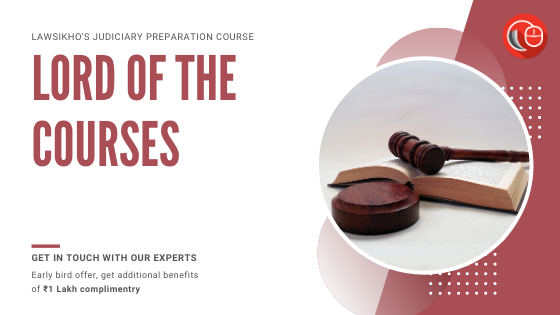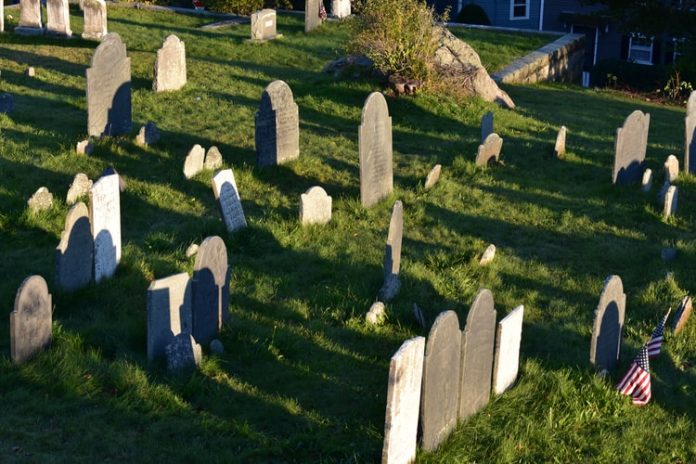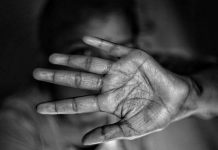The article has been written by Akarsh Tripathi, a learner of Symbiosis Law School, Noida. In this article, he discusses the right of decent burial or cremation in the light of COVID-19 pandemic and the unfortunate loss of life.
Table of Contents
Preface
Recently, Dr Simon, who was a neurosurgeon and the Managing Director of New Hope Hospital in Chennai, passed away. He will always be remembered for putting humanity first and treating his patients until his last breath. However, his burial invited mass opposition and protest by a mob which was of the view that his burial will lead to further spread of the infection. This gave the officials no choice but to change the venue of burial, and bury his body elsewhere rather than the consecrated place. The incident led to sensitization of this issue amongst the society, and later various guidelines and orders were released by authorities regarding the burial procedures and methods.
Introduction
As of May 29, 2020, there have been more than 5.8 million cases of COVID-19 and 3 lakh deaths across the globe. The unprecedented crisis that has stretched its waves all over the world has taken the lives of many people, bringing more challenges to the health sector of each and every country. We all know by now, that the highly contagious virus spreads from one person to another, mainly through respiratory or contact transmission. But what about a dead body of a COVID-19 patient? Can a dead body of an infected patient also transmit the coronavirus? If it can, what is the best way and the safest manner to dispose of the body? By the end of this article, we will be able to get the answers to all these questions.
In this article, we will be also learning about the ‘right to burial’ in the light of COVID-19 crisis and the legal implications associated with the same. Apart from this, it is important to learn about the guidelines and advisories released by the World Health Organisation(WHO) and Ministry of Health India, and how those practices will affect the religious traditions and beliefs of people. Before concluding this article, I have also done a comparative analysis of the recent UK Bill, highlighting its provisions related to the burial of COVID-19 deceased persons.
Right to Decent Burial: A right under Article 21
After the law and order situation in Chennai, the Madras High Court took cognizance on the news and issued a notice on the issue whether or not the right to burial is guaranteed under Article 21 Right to Life? Another question to be looked upon is: Do we owe a duty to hand out a decent burial or cremation to a dead body of a patient who was previously infected with COVID-19 virus?
But before we answer these two questions, lets first recall Article 21 of the Indian Constitution, which says that:
“Protection of life and personal liberty: No person shall be deprived of his life or personal liberty except according to the procedure established by law.”
In the Suo Motto vs. The State of Tamilnadu W.P. No. 7492 of 2020, the Court was of the opinion that the scope and ambit of Article 21 of the Indian Constitution includes the right of a person to have a decent burial. Taking into consideration the facts and circumstances of this case, It also mentioned that anyone who interferes in this procedure of decent burial shall be liable under Section 297 of the Indian Penal Code, which speaks about Trespassing on burial places. The fundamental right to life and personal liberty which has been guaranteed under Article 21 of the Indian Constitution has an expanded meaning and the nuances have to be explored using various other judicial pronouncements. As rightly said in the case of Bandhua Mukti Morcha vs Union Of India & Others, 1983, Article 21 of the Constitution, assures the right to live with human dignity. Furthermore, in the case of Common Cause (A Regd. Society) vs Union Of India, 2018, it was contended that the right to die with dignity is an inseparable and inextricable facet of the right to live with dignity.
Death is a natural phenomenon, and a decent treatment ought to be given to the person. In the recent incident where a mob attacked the ambulance in which Dr Simon’s dead body was taken, the colleagues were left with no other option but to dig a grave for the doctor with bare hands. The Court stated here that Dr Simon was deprived of his right to have a decent burial in the cemetery which was earmarked for the purpose.
The Supreme Court of India, along with many High Courts has clearly accepted that a dead body(human corpse) must be given a fair treatment at the time of burial, and the process must be done with appropriate dignity. For further read one may also refer to Pt. Parmanand Katara vs Union Of India & Ors, 1989.
In the end, let’s reiterate the questions we asked ourselves in the beginning. Firstly, Whether the right to burial is guaranteed under Article 21 Right to Life? Answer: Yes. And, Secondly, Do we owe a duty to hand out a decent burial or cremation to a patient who was infected with COVID-19 virus? Answer: Yes.

Burial or Cremation: A safer Approach
To start with this, we need to do a fact check upon the question:- Can dead bodies transmit the coronavirus infection? The answer is No. According to a WHO report, dead bodies are generally not infectious, except in cases where the cause of death is hemorrhagic fevers (such as Ebola, Marburg) or Cholera. Cadavers do not generally transmit disease from the dead body to another person. There have been instances across the globe, like in Indonesia, where citizens refused nearby burial of the deceased people who had unfortunately lost their lives by being infected with COVID-19 virus. Some protestors blocked the roads of the capital city, Jakarta, to prevent the dead bodies from being transported to cemeteries.
A common myth has taken a heavier toll that if a person has died because of a communicable disease or a virus then the individual should be cremated rather than buried. Thus, people who have died from the contagious COVID-19 virus can be either buried or cremated. The one important thing that needs paramount attention in the given situation is that the people/ workers/ staff who are handling the corpses should take all the adequate and precautionary steps in accordance with those issued by WHO and other health authorities.
With the arrival of the novel coronavirus, the process of burial and cremation has become complicated. There are religions where the body needs to be washed before the burial takes place. However, due to the safety protocols countries like Malaysia have released advisories to replace the washing of the dead body with just a symbolic ‘cleansing’ using purified sand or dust over the body bag in which the body has been placed.
Thus, Burial and Cremation are both safe. In Burial the body is sealed, and it takes around 7-10 days for the body to decompose and within 3-4 more days, the body fluids also dry up. As of now, there have been no cases where the burial of a corpse had caused the groundwater to infect and further spread the virus.
Is this an unnecessary debate?
The question of which approach to choose and which one is safer came into highlight when fear amongst the society developed, thinking that burial of such dead bodies, infected with COVID-19 might lead to further spread of the infection. Majorly, there are three things which are considered whenever the question arises. Firstly, the impact on the environment. Secondly, the religious beliefs and norms which shouldn’t be compromised, and Thirdly, the ‘Respect of Remains’ where the deceased person should be given respect and dignity.
So, what needs to be kept in mind here, is that all these are different matters altogether. The fact that we need to take precautionary steps while the burial or cremation process takes place, nowhere means that the citizens fundamental right to practice their religion or the rights guaranteed under Article 21 of the Indian Constitution, won’t be taken into consideration. It is an unnecessary debate and is a deterrent for society especially at the time when we all need to reiterate on the guidelines released by WHO and Health Authorities to protect our lives from this virus.
Priority Test: Public Health or Religious Rights?
Recently, some residents from Bandra, Mumbai approached the Supreme Court challenging the Bombay HC order denying the plea to put a stay order on the burials of dead bodies which were COVID-19, infected patients. They invoked their right by saying that public health should be considered over religious rights. On the other hand, The Jamiat Ulama-I-Hind, an organisation of Mumbai has pleaded before the Supreme Court to ensure that the fundamental right to religion should not be compromised in this pandemic. The main objective of the plea was to protect the Muslim Culture, where the burial of a dead body is an integral part of the last rites being performed as per the religion. The SC didn’t interfere in the interim order given by HC. SC directed HC to finalise the matter within 2 weeks. The issue of ‘priority’ is what needs to be understood here. On one hand, we have the public health safety which needs to be protected and taken care of. On the other hand, we have the religious beliefs of communities which are at stake, and should also not be compromised. Apart from this priority test issue, there is one more question worth analysing. Does the right to bury dead bodies form a part of the ‘right to religion’ under Article 25 of the Indian Constitution? Similar to the approach followed in the previous discussion of the right to decent burial and Article 21, we will first understand Article 25 of the Indian Constitution.
According to Article 25 of the Constitution talks about the right to freedom of conscience and the right to free profession, practice and propagation of any religion, subject to public morality, order and health.
In the case of Varied Porinchukutty v. State of Kerala and Ors, 1996, it was held that religion also includes the practices which are followed by a community as part of the religion. This means that the different modes of disposing of a body followed by different religions form an integral part of their right to exercise their religion and faith.
For instance, amongst most Hindus, the disposal of a deceased person’s body is done by a cremation, however, in the case of Muslims and Christians, the same is made effective via burial of the dead body. There are many sects/religions where the burial of the bodies takes place only at the consecrated places, ensuring their fundamental right to religion as per Article 25 of the Indian Constitution.
There is another point of contention by those who are of the view that the dead bodies of COVID-19 infected patients shall be disposed of as per the religious cultures and norms only. Their point is that scientific research or studies say that infection cannot spread through the dead bodies, provided that proper handling and safety is ensured. Addressing this point of contention, the Supreme Court in its Special Leave Petition said that one must understand it is imperative to be ‘safe rather than sorry’ in these extraordinary times of crisis, where we still don’t’ have any vaccine for this highly contagious virus. According to WHO, there is no key evidence until now, which could prove that a person can get infected from the dead bodies of COVID-19 patients. It also said that the dignity of the dead person and its cultural and traditional practices must be protected and respected throughout the process, and advised against hasty disposal of the dead bodies. For countries where the death rate has increased rapidly, there have been major concerns regarding the burials of COVID-19 deceased patients, overwhelming the burial and cremation grounds across the globe. Also, if we take a look at the different governments around the world, we can learn about the advisories being released on ‘cremating’ the bodies of the COVID-19 deceased person, rather than burying them.
Looking at the current unprecedented crisis due to novel coronavirus, the health situation ought to take preference over the religious rights of a deceased person and the rights of the family members of the deceased person who are trying to seek permission to bury the body at the subject cemeteries.
After a thorough understanding and reading of Article 25 of the Indian Constitution also, we can also point out here that the right to religion is subjected to public health, and thus, in this priority test, Public Health shall take priority over Religious Practices. However, the state must try its level best to ensure that it dignifies the disposal of corpses the same way it respects a human being. In other words, every human being is entitled to a decent disposal of his/her body in accordance with the cultural norms and traditions.
Guidelines
WHO Guidelines on Burial, Cremation of Dead Bodies
On March 24, 2020, WHO released interim guidance titled “Infection Prevention and Control for the safe management of a dead body in the context of COVID-19”. The guidance was released for everyone who managed the health care facilities and the religious and public health authorities who came into contact with the suspected, confirmed or dead COVID-19 patients. The recommendations are supposed to get revised in case there is some major evidence which comes into the light.
Firstly, we will look at the most relevant section of the guidelines which were given by WHO with regards to Burial: (Please refer to Page no 2 of the link attached)
- People who have died from COVID-19 can be buried or cremated as per their religious norms and traditions.
- The family members and friends may view the dead body once it is ready for burial. However, they should not touch, or kiss or come into close contact with the body. After viewing the body, they must wash their hands thoroughly using soap and water.
- People who are involved in the task of placing the body in the grave or cremating it should wear gloves and a mask. Also, once the burial or cremation is over, they must dispose of their gloves (properly) and wash their hands thoroughly using soap and water.
Apart from these, there are some other guidelines given by WHO with regards to burial by family members or where the ill person dies at home.
- Anyone, be it a family member, or a religious leader who is preparing (for instance, cleaning, dressing the body, trimming nails, or shaving) the body of the deceased person, must perform all the hygiene and sanitation practices during and after the burial takes place.
Ministry of Health: Guidelines on Dead Body Management
Amid the controversy in Chennai and after that in Delhi of a 68-year old COVID-19 deceased patient, the Union Government has released some guidelines and frameworks which must be followed in the process of handling the body of corpses infected with the novel coronavirus. Even though there is no concrete evidence that the virus spreads through dead bodies, the ministry doesn’t want to take much risk, especially at the time of this unprecedented scenario.
For this one of the spokespeople of the health ministry also said that any misconceptions must be dispelled immediately and awareness must be raised regarding the fact that the virus “might” spread from a deceased body of a person who was infected with the coronavirus. One thing which must be kept in mind is that Coronavirus is a respiratory disease and can transmit via droplets. The possibility of the disposal staff or those involved in the mortuary being contracted with the virus from the body of the deceased person is unlikely, as compared with the cases related to Ebola and Nipah virus, as these have a very high probability to spread from one person to another if there is direct contact with the body fluids of the dead body.
The Ministry of Health also gave consideration to the World Health Organisation (WHO) guidelines on “Infection Prevention And Control of Epidemic and Pandemic-prone Acute Respiratory Infections in Health Care”. The same has already been discussed in the previous sub-heading. The Health Authorities of India is constantly stressing on the importance of the use of personal protective equipment which is in accordance with the standard precautions. These will help in protecting a person and avoiding any type of direct contact with the body fluids of the deceased person, while the procedure of disposing of the body is taking place, or while moving the corpse from the isolation room or area of the health care facility.
Here are some key pointers from the “COVID-19: GUIDELINES ON DEAD BODY MANAGEMENT” which were released by The Government of India Ministry of Health & Family Welfare Directorate General of Health Services (EMR Division):
- Embalming (preserving human or animal remains by treating them with chemicals to forestall the decomposition) of the dead body is not allowed.
- Autopsies should be avoided.
- In the case of the Autopsy procedure being performed due to some special reason, then proper infection prevention control practices must be adopted.
- The mortuary staff involved in the process of handling the COVID-19 infected dead body should observe standard precautions.
- These dead bodies must be stored in chambers with an approx temperature of 4℃.
- Viewing of the dead body by unzipping the face end of the body bag (by the staff using standard precautions) may be allowed, for the relatives to see the body for one last time.
- Important: The Crematorium or the Burial ground staff must be sensitized about the fact that COVID 19 does not pose any additional risk.
- Large gatherings at the crematorium/ burial ground should be avoided as a social distancing measure as it is possible that a close family contact may be a suspect of COVID-19 virus or symptomatic to it.
- Important: The ash does not pose any risk and can be collected to perform the last rites.
- Religious rituals such as reading from religious scripts, sprinkling holy water and any other last rites that do not require touching of the body can be allowed.
After closely analyzing these guidelines and frameworks one can come to the conclusion that the scope of the guidelines was also to clear the myth and false information regarding safety issues involved in the process of burial or cremation.
Also, one of the points worth appreciating about these guidelines is that they try their level best to allow the religious practices to be followed which do not pose threat to other lives, and so that with proper precautions and use of personal protection equipment, the citizens of the country don’t have to compromise with their fundamental Right to Religion as bestowed on them as per Article 25 of the Indian Constitution.
The Global Scenario: A Comparative Analysis with the UK’s Bill
The Coronavirus Act, 2020 is an act passed by the parliament of the UK with an aim to make provisions in connection with the COVID-19 pandemic and connected purposes. It grants the government powers to handle the pandemic and use discretionary power to limit or suspend any public gathering or movement.
For this topic, the relevant part of this Act is Section 58 of the Coronavirus Act, 2020. The provision talks about the powers of the authorities and government in relation to the storage, transportation and disposal of dead bodies of people at the time of COVID-19 pandemic.
The Section further states that the authorities and government will confer the powers to transport, dispose of, or store the human remains via Schedule 28 of the Act. The Schedule has been divided into 5 parts:
- Part 1: Information about the capacity;
- Part 2: Directions and other measures to address lack of capacity;
- Part 3: Power to direct local authorities etc;
- Part 4: Deceased’s wishes etc;
- Part 5: Interpretation.
An interesting clause present in Schedule 28, is Part 4: 13(1), according to which the local authorities and the appropriate national authorities must have regard to the desirability of disposing of a dead person’s body in accordance with the person’s wishes if known or otherwise in a way that appears consistent with the person’s religion or beliefs if known.
Analysis: After a reading of the Act, one thing which must be compared is how well the legislative authorities have crafted the law and recognized its importance at the time of this pandemic. The Act might have its own loopholes, but the Indian Health Authorities should pay heed to the fact that it is time we enact provisions which are detailed and well analysed and ensure a balance towards the public health safety and safeguarding the fundamental rights of the citizens of the country. The UK’s Bill named ‘Coronavirus Act, 2020’ is a step in this direction only. The same needs to be done in other countries also, but surely with a tailored approach taking into consideration the majority of the population, the religious practices, the rights conferred in the particular country. In simpler words, we need to keep in mind that ‘no size fits all’, and filling the existing gaps will require updates, guidelines and provisions for the public, the hospitals, and the people involved in the procedure of burial.
Shortcomings: The real “priority”
Talking about gaps, and shortcomings, before concluding the article, it’s important to know what is the deficiency with respect to the facilities, legislatures, etc. The novel coronavirus pandemic has not only presented a health and economic crisis but also a crisis of faith in the final journey of humans. There is an urgent need for enactment of a law which will provide the establishment of burial grounds and public crematoriums, and will ensure that a proper maintenance/ management is taking place in these places.
The existing guidelines given by the Ministry of Health and other State Authorities are inadequate and outdated too. The guidelines which we studied earlier in this article, by the Ministry of Health were released back when there were only 2 deaths in the country. This means there are no fresh guidelines or frameworks which would take into consideration the fact that as of now there have been 6900+ deaths across India.
Conclusion
Concluding all the other discussions of this article, here are the key pointers based on each and every heading:
- The right to burial is guaranteed under Article 21 Right to Life.
- We, as members of the society, owe a duty to hand out a decent burial or cremation to a patient who was infected with COVID-19 virus.
- Both Burial and Cremation are safe approaches (as per the studies conducted till now), provided that proper precautions are taken using personal protection equipment.
- It is an unnecessary debate about whether burial is a safer practice or cremation. Rather, we need to reiterate the guidelines and frameworks issued by the WHO and local health authorities.
- Article 25 of the Constitution provides Right to Religion but is subjected to Public Health. Thus, Public Health shall take priority over Religious Practices. This doesn’t mean that the state can compromise with the fundamental right guaranteed to the citizens of our country.
- WHO and Ministry of Health Guidelines must be read, and awareness should be there regarding these frameworks. These guidelines are structured in a way which ensures a balance between the rights of people and insurance of public safety and public health.
- The existing guidelines are now outdated and don’t take into consideration the current death toll in the country, which makes it ineffective to some extent.
- There is an urgent need for enactment of laws and facilities which will ensure proper management of burial or crematoria places.
References
- https://apps.who.int/iris/bitstream/handle/10665/331538/WHO-COVID-19-lPC_DBMgmt-2020.1-eng.pdf
- http://timesofindia.indiatimes.com/articleshow/47409240.cms?utm_source=contentofinterest&utm_medium=text&utm_campaign=cppst
- https://apps.who.int/iris/bitstream/handle/10665/331538/WHO-COVID-19-lPC_DBMgmt-2020.1-eng.pdf
- https://www.indiatoday.in/india/story/burial-or-cremation-what-is-a-safer-funeral-if-someone-dies-of-covid19-1668257-2020-04-18
- https://www.moneycontrol.com/news/coronavirus/covid-19-lets-not-deny-the-right-to-a-decent-burial-5218391.html
- https://www.npr.org/sections/coronavirus-live-updates/2020/05/01/848956806/fearing-infection-some-in-indonesia-refuse-nearby-burial-of-covid-19-victim
LawSikho has created a telegram group for exchanging legal knowledge, referrals and various opportunities. You can click on this link and join:
 Serato DJ Crack 2025Serato DJ PRO Crack
Serato DJ Crack 2025Serato DJ PRO Crack










 Allow notifications
Allow notifications


